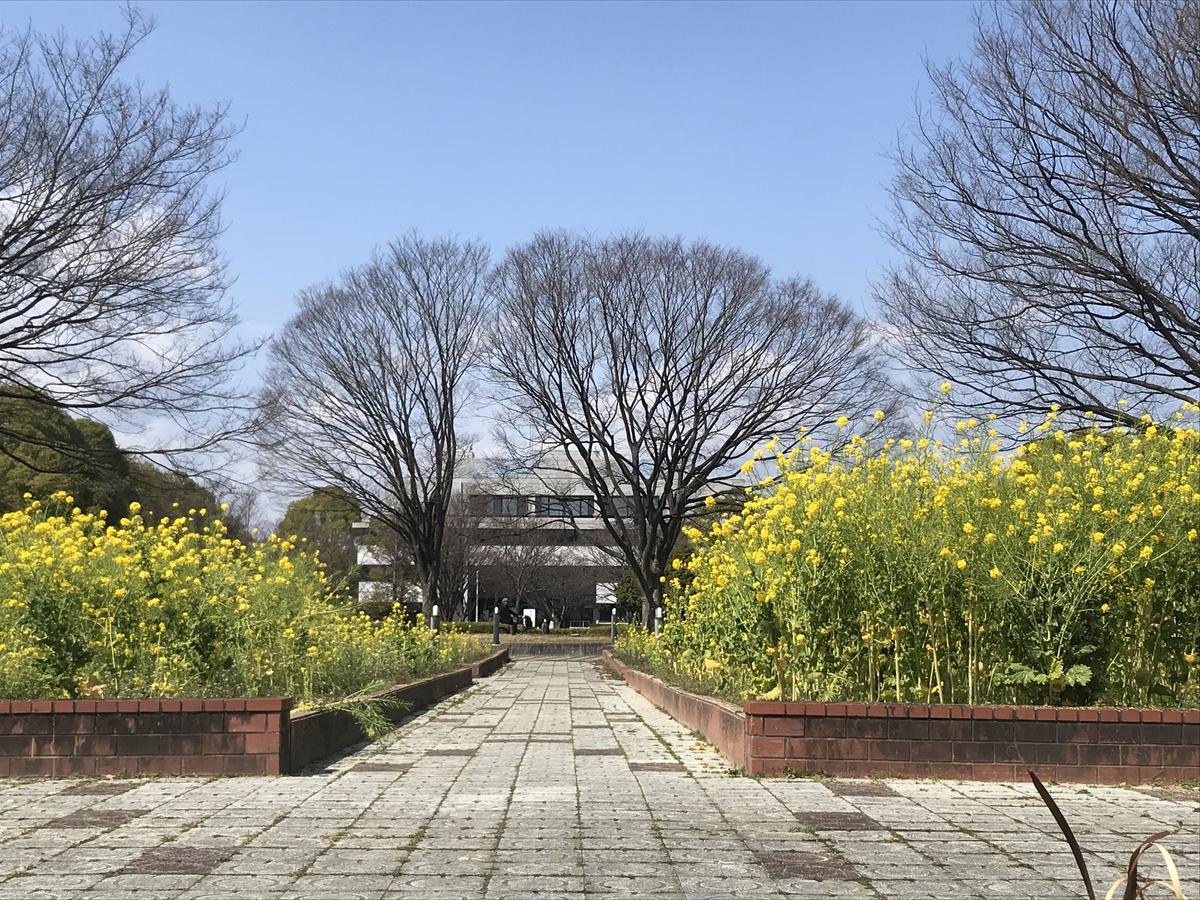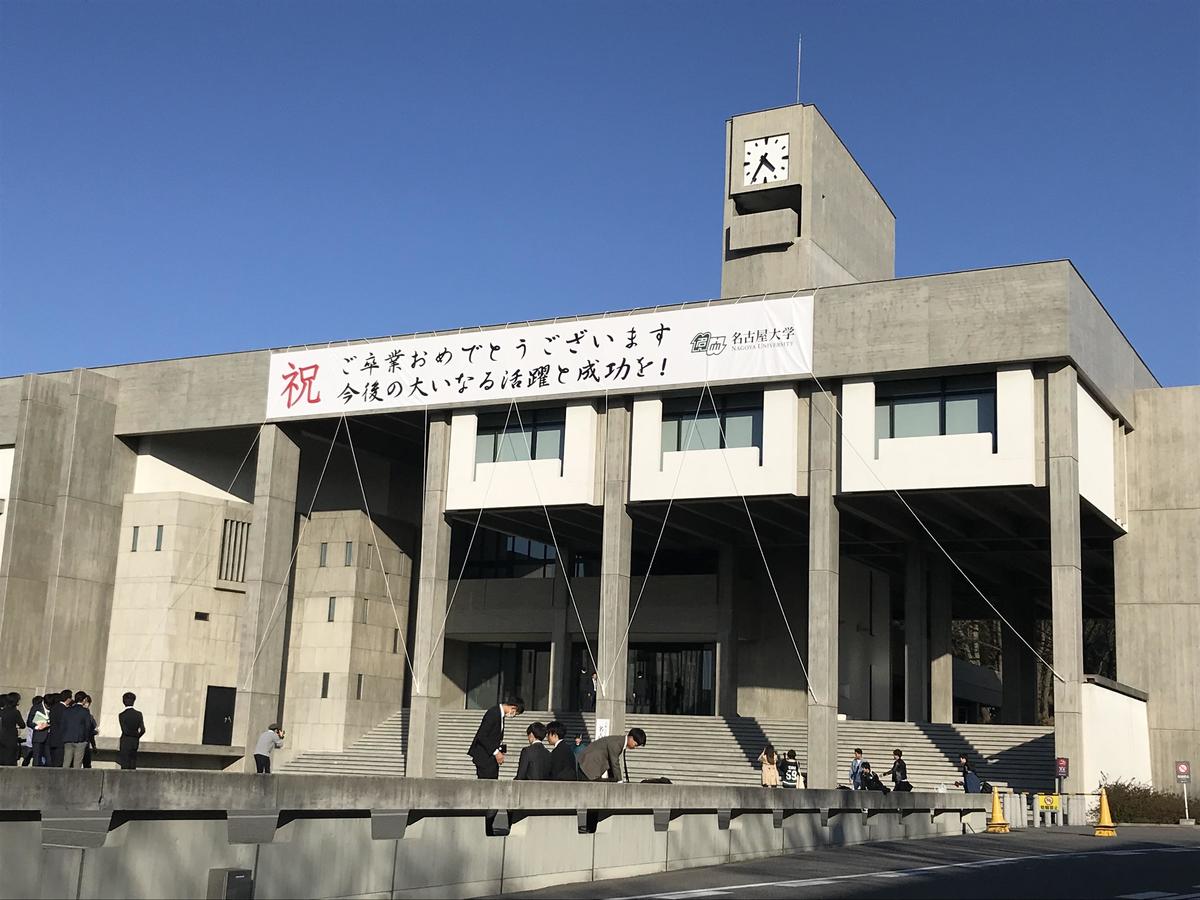March 30, 2020
Thank you for reading!
The Meidai Watch series, which I have been writing for over three years, since January 2017, finished at the end of March 2020. I wish to thank everyone who has read my posts.
Based on my mission to "write freely from an outside perspective," I have strolled around the campus looking into whatever I was interested in. There are still plenty of topics that I wanted to cover, and I didn't manage to reach the "whole of the university," which was my ambitious aim at the start of this series. However, I believe I have succeeded to a certain extent in showcasing some of the unique aspects of Meidai which are not usually seen from the outside, and indeed are surprisingly little-known even within the university.
 The campus, deserted due to coronavirus restrictions, bright with rapeseed flowers
The campus, deserted due to coronavirus restrictions, bright with rapeseed flowers
My three-and-a-half years at Nagoya University have also been a chance to consider what a university is.
Putting it briefly, it is "time and space."
In my article "What is a 'Courageous Intellectual'?" on April 23, 2018 , I focused on the idea of "imagination" from the phrase "individuals who possess intellectual courage, the power of rational thought, and imagination" stated in Nagoya University's Academic Charter. Personally, I define imagination as "the ability to 'see' what cannot be seen or what may happen in the future, based on what can be seen or what has already happened," or "the ability to expand one's thinking and ideas beyond a certain time and space." I believe this is an important ability that should be nurtured at university.
In this article I quoted Yojiro Ishii, former Dean of the University of Tokyo College of Arts and Sciences. In his recent book "Tokyo University in Crisis," Ishii wrote:
"The mission of a university should be to cultivate uninterrupted time to allow ideas to develop and an inspiring space where words can be freely exchanged, and to provide them to as many people as possible. If not, what is the point of being a university?"
I completely agree with this.
In a time and space of freedom; expanding one's ideas beyond time and space; and producing knowledge for a better future. I believe that is what a university is, and this is what society expects. On the campus of Meidai, I have met many researchers who are expanding the realms of imagination, working day and night on our behalf, with their sights set on the future. It is vital for society to support universities with such endeavors.
I have high hopes for the future of Nagoya University. Thank you for having me here for the past three and a half years.
 Wishing the best for the young graduates setting out on their journeys!
Wishing the best for the young graduates setting out on their journeys!

 Subscribe to RSS
Subscribe to RSS